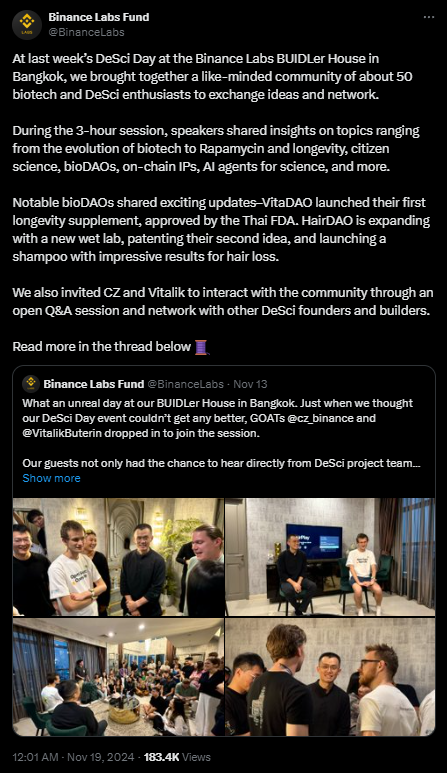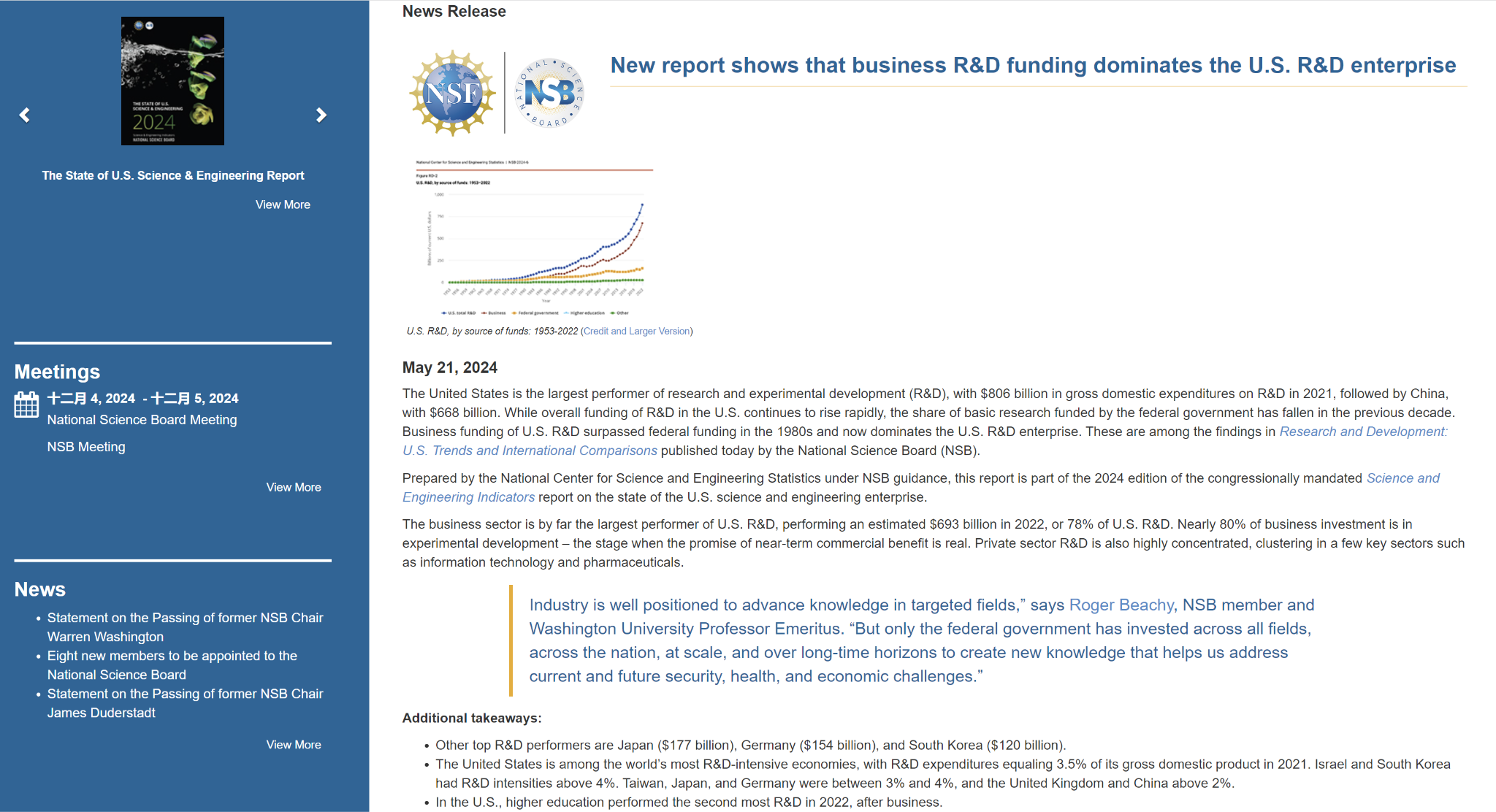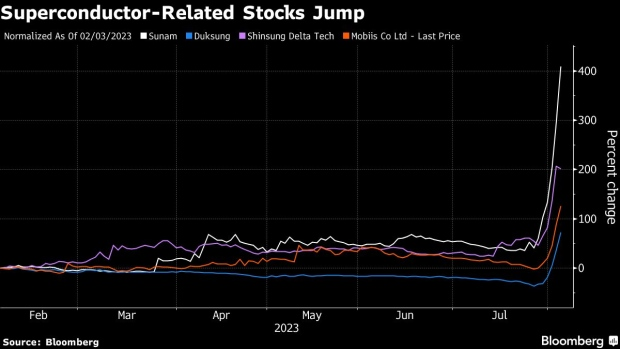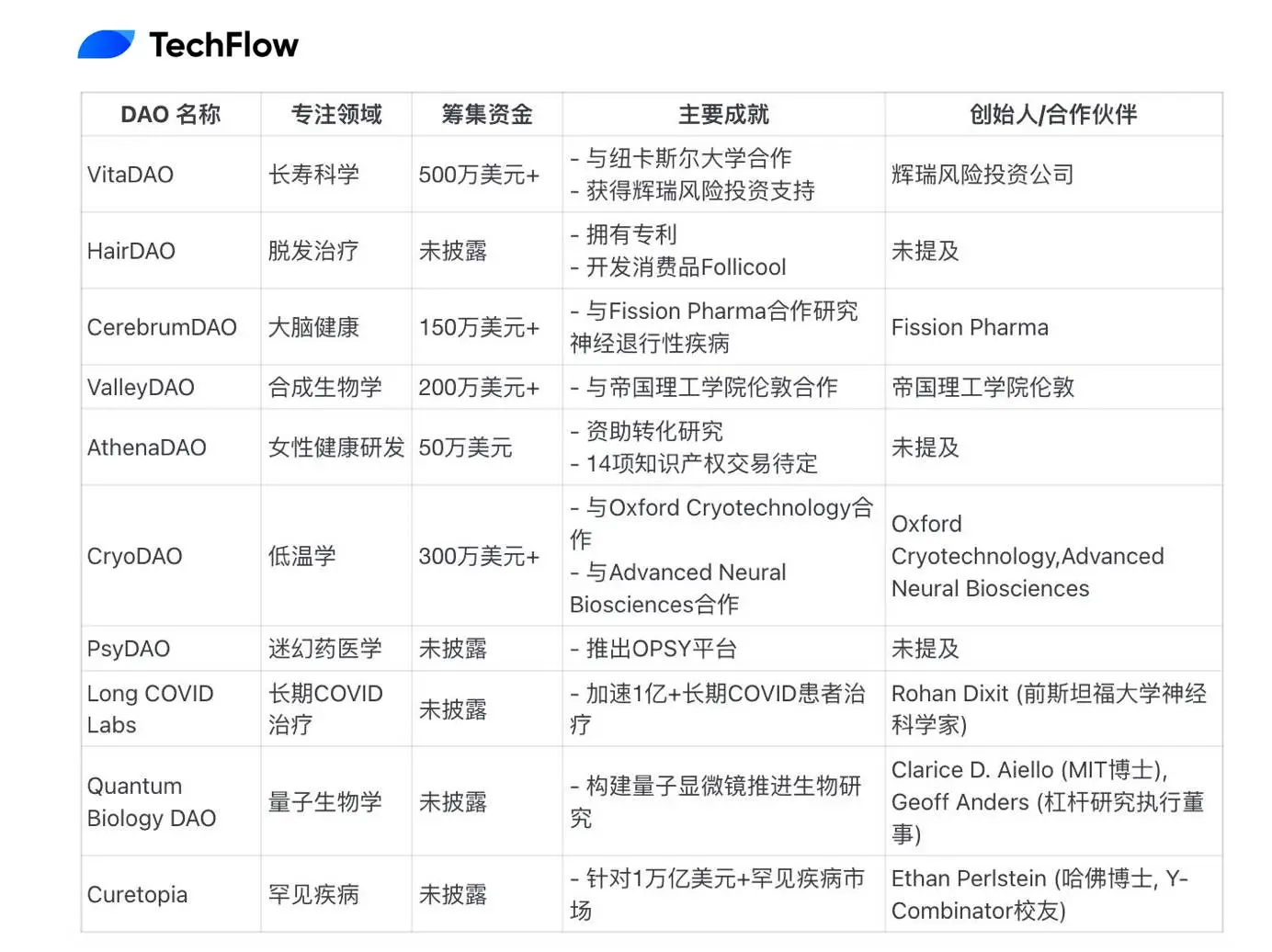Author: YBB Capital Researcher Ac-Core
TL;DR
The emergence of the DeSci hotspot mainly stems from Binance Labs' investment in BIO Protocol, CZ's new direction speech involving biotechnology adoption, and CZ's discussion of DeSci with Vitalik, while a16z led the DeSci project AmionChain;
If we view DeSci as a meme, its fundamentals require stronger narratives and endorsements from influential figures compared to other meme directions like zoos, AI, and art, while also having greater potential to break boundaries;
In practical terms, the current economic scale of the DeSci market is insufficient to support research funding expenditures, and DeSci is still in the early stage of the "market cap dream," with hype being a necessity.
I. Background
1.1 What is DeSci
The more official explanation is that DeSci (Decentralized Science) aims to build public infrastructure for scientific research through the fair and equal use of Web3 technology, focusing on issues such as peer review, research funding, intellectual property management, and data transparency and scrutiny mechanisms.
In simpler terms, DeSci is about applying the pure speculation of the crypto world to the zero speculation of scientific research. However, DeSci is not a new concept that emerged this year; VitaDAO, which focuses on funding and promoting early longevity scientific research, was established as early as 2021 and even received investment from the world-renowned pharmaceutical company Pfizer. Yet, DeSci has historically developed slowly and has not attracted market attention until recently when Binance Labs announced its investment in BIO Protocol, and CZ participated in a DeSci conference with Vitalik, bringing this sector back into the public eye.
1.2 The Birth of the Hotspot
- Binance Labs exclusively invests in BIO Protocol:
BIO Protocol can be seen as a crowdfunding platform for raising funds for scientific projects through token sales, using these funds to support and advance biotechnology projects. Intellectual property exists in the form of IPT (Intellectual Property Token) under the Molecule protocol and is shared among participants.
BioDAO will reinvest the profits from intellectual property and product sales back into BioDAO's treasury to fund the next generation of research projects. Binance Labs stated, "BIO can be seen as the Y Combinator of on-chain science." Currently, the total value of the top 100 startups under Y Combinator has exceeded $100 billion, including well-known companies like Airbnb, Coinbase, Stripe, and Reddit.
- CZ's new direction speech includes biotechnology and discussions on DeSci with Vitalik:
In his first speech after being released during the 2024 Dubai Binance Blockchain Week, CZ articulated his relationship with artificial intelligence and biotechnology, stating, "Now I mainly do two things: one is Google Academy, and the other is investment. The investment mainly focuses on three areas: blockchain, artificial intelligence, and biotechnology." Subsequently, CZ attended the DeSci Day event held by Binance in Bangkok and discussed DeSci with Vitalik. This sparked market discussions, leading to significant price increases for various DeSci project tokens.
- a16z leads the DeSci project AmionChain:
Recently, AminoChain announced that it secured $5 million in seed funding led by a16z, along with previous investments from private funds like Cercano, bringing the total funding to $7.8 million. Its vision is to build a decentralized "biobank" on L2, allowing researchers to easily find and access samples while patients retain control and receive compensation for the use of their data.

Image source: X(@BinanceLabs)
II. The Real Needs and True Use Cases of DeSci
2.1 Serious DeSci: Funding Needs in Research
According to the 2024 report from the National Science Foundation (NSF) and the National Center for Science and Engineering Statistics (NCSES), the estimated research expenditure in the U.S. for 2023 is $710 billion, with R&D spending in 2022 nearing $700 billion, where corporate R&D dominates, accounting for about 78% of R&D investment from the private sector, especially in fields like information technology and pharmaceuticals.
In 2021, apart from China and the U.S., the countries with the best performance in research spending were Japan ($177 billion), Germany ($154 billion), and South Korea ($120 billion). In 2021, U.S. R&D spending was equivalent to 3.5% of GDP, with Israel and South Korea exceeding 4%, while Taiwan, Japan, and Germany were between 3% and 4%, and the UK and China were above 2%. In 2022, U.S. higher education R&D investment ranked second, only behind commercial funding. Funding for life sciences research is the highest in the science and engineering fields, reaching $42 billion (44% of the total), mainly from the Department of Health and Human Services (data can be found in extended link 1).

Image source: see extended link 1
In 2023, China's R&D expenditure exceeded 3.3 trillion yuan (approximately $458.5 billion), an increase of 8.1% year-on-year.
Among them, the investment in basic research was 221.2 billion yuan, growing by 9.3%. Compared to previous years, China has maintained a high growth rate in recent years, especially in high-tech and basic research, demonstrating the driving force of the strategy for becoming a technological powerhouse (data can be found in extended link 2).
Comparing the growth of research expenditure: China's research funding growth rate is relatively fast, particularly in basic research, reflecting the country's determination for technological innovation and emphasis on high-end technology fields. Although the absolute amount in the U.S. is higher, its growth rate is more stable, focusing on long-term technological advantages.
From the practical application of DeSci, it currently remains more in the narrative stage of memes, making it difficult to directly drive technological development. Whether through narrative-driven donations or market liquidity from speculative trading, the existing economic scale is still far from sufficient to support the massive funding required for research. Therefore, DeSci is still in the early stage of the "market cap dream." For DeSci to truly take off in the future, it needs to meet regulatory requirements and gain sustained support from influential figures.
2.2 A Real-World Academic Finance Case of DeSci: The Korean LK-99 Room Temperature Superconductor Incident

Image source: Taj Quantum - Official website of Taj Quantum, USA
2023 has been dubbed the "Year of Room Temperature Superconductors," mainly due to several studies claiming the discovery of room temperature superconductors, which sparked widespread attention in the global scientific community. However, as subsequent investigations deepened, these findings were proven to have serious issues, even leading to an academic scandal.
The incident began when physicist Ranga Dias from the University of Rochester in New York published a paper in Nature, claiming to have discovered a material capable of achieving superconductivity at room temperature. This discovery was initially seen as a major breakthrough, as the emergence of room temperature superconductors could fundamentally change the technological development in energy transmission, medical devices, and electronic components. Typically, superconductors need to operate at extremely low temperatures (below -196 degrees Celsius), and achieving superconductivity at room temperature has been a goal pursued by the scientific community. However, Dias's research faced significant skepticism from the outset, particularly as his academic reputation had already been controversial due to similar research in 2020.
As early as 2020, Dias gained rapid fame for a paper on room temperature superconductors, but that paper was retracted by Nature two years later. Nevertheless, Dias published similar research again in 2023, reigniting interest. However, many peers accused him of data manipulation and even plagiarism of doctoral thesis content. Several well-known media outlets, including The Wall Street Journal and Science, launched investigations into him, revealing issues in his research. The University of Rochester also initiated multiple internal investigations against Dias, ultimately confirming through external experts that his paper had "data reliability issues," leading to the revocation of his authority to manage his laboratory and students. In November 2023, Nature officially retracted his latest paper on room temperature superconductors.
The scandal's details gradually came to light. According to an investigation by Nature's news team, members of Dias's research team did not observe the key superconducting phenomenon known as the "Meissner effect" during experiments, yet they received a manuscript from Dias shortly after and were asked to cooperate in submission. These graduate students felt confused about certain experimental data in the paper, but under the authority and pressure from their advisor, they ultimately did not publicly question these issues. Subsequently, more reviewers and experts expressed skepticism about Dias's experimental data, discovering that the data might have been tampered with.
While Dias's first paper faced scrutiny, he claimed to have discovered superconductivity in another material (a compound of lutetium and hydrogen, LuH). However, the measurement data from this research was also fraught with issues, with many students pointing out systematic errors in the experimental results, even believing they were "fooling themselves." Faced with increasing skepticism, Dias chose to push for the publication of the paper, but 8 out of the 11 co-authors ultimately decided to request a retraction.
This series of academic scandals not only severely damaged Dias's reputation but also impacted the entire research field. The career prospects of many young scientists became uncertain due to their involvement in these studies, and trust in the academic community was undermined. Paul Canfield, a physicist at Iowa State University, remarked, "This scandal has harmed the careers of young scientists, especially those in the field of superconductivity."
Meanwhile, another key player in the room temperature superconductor field, the Korean LK-99 team, also became embroiled in similar controversies. Although they claimed to have discovered a new "room temperature superconductor"—PCPOSOS—in 2024, many in the scientific community expressed doubts about the authenticity of their research. The data presented by the team at academic conferences was similar to previous LK-99 research and lacked sufficient verification support.

Image source: Bloomberg
After the announcement of breakthroughs in superconductor technology, some South Korean stocks related to superconductors attracted a large number of investors. Small-cap stocks in the South Korean superconductor sector, such as Duksung Co. and Sunam Co., hit the daily limit of a 30% increase for the third consecutive trading day. Sunam Co. surged approximately 260% over the past six trading days, while Duksung rose by 170%. Mobiis Co. increased by 30% on Thursday, and Shinsung Delta Tech Co. briefly rose by 21%, reaching an all-time high.
In the later stages of the event, the Korean Superconductivity Society's verification committee stated that LK-99 did not exhibit the Meissner effect and could not be proven to be a superconductor. This news led to fluctuations in Chinese superconductor concept stocks, with Falunsheng and Zhongfu Industrial experiencing significant declines in stock prices; the former is not involved in superconductor technology, while the latter only provides venue and equipment support. Meanwhile, the stock price of American Superconductor fell by 29%, and Sumitomo Electric Industries also saw a decline due to poor performance.
III. Overview of the DeSci Ecosystem
3.1 BIO Protocol
The BIO Protocol, which received investment from Binance Labs, has been dubbed the "Y Combinator of on-chain science," aimed at incubating early-stage companies by providing funding and resources to accelerate project development. According to content from Deep Tide TechFlow, the main components include BioDAO, a curation system, liquidity and IP tokenization, and incentive mechanisms.

Image source: Deep Tide TechFlow - Interpreting BIO Protocol - BioDAO
$VITA (VitaDAO): Founded in 2021, VitaDAO focuses on funding and promoting early longevity scientific research, aiming to extend human healthspan, managed by $VITA holders;
$RSC (ResearchCoin): Used to reward users for their contributions on the ResearchHub platform, aimed at accelerating scientific research by incentivizing contributions within the community. Anyone can earn $RSC by sharing, curating, and discussing academic science within ResearchHub;
$ATH (AthenaDAO): AthenaDAO is a decentralized community composed of researchers, funders, and advocates dedicated to advancing women's health research, education, and funding;
$GROW (ValleyDAO): A decentralized organization focused on anti-aging drugs and longevity projects.
3.2 Pump.Science
The Solana ecosystem DeSci platform Molecule DAO is a meme launch platform introduced at the Solana Breakpoint 2024 conference. Pump.science will issue meme tokens representing drugs on Pump.fun, with related concept tokens including:
$RIF: Rifampicin, which according to the official website, "is an antibiotic that has gained attention for its remarkable effects on aging. In microorganisms like Caenorhabditis elegans (a model organism often used in aging research), rifampicin has been shown to activate the cell's natural defense mechanisms to resist stress and damage. Imagine it as a 'cell coach' that encourages cells to stay healthy and resilient by protecting them from harmful oxidative stress and maintaining the quality of intracellular proteins. These protective effects help worms live longer and healthier."
$URO: Urolithin A, which according to the official website, "is a compound produced by your body when you consume foods rich in ellagitannins (such as pomegranates). What makes urolithin A special is its ability to perform a 'spring cleaning' for your cells. It helps clear out old, dysfunctional mitochondria (the energy factories of cells), allowing fresh, healthy mitochondria to thrive. This process, known as mitophagy, has been shown to extend the lifespan of Caenorhabditis elegans by making cells more efficient and vibrant."
3.3 Donation Concept
$Scihub: An unofficial token donated by @0xAA_Science, aimed at supporting open-source research paper websites. The token's direction is derived from the Sci-Hub shadow library and is merely a community meme token. Sci-Hub is a non-profit, non-governmental website that provides free access to academic paper downloads. In addition to resources like Google Scholar, Sci-Hub, LibGen, and PubMed, it also integrates a range of other academic resources in Chinese and English that are publicly accessible on the internet, allowing for one-stop searching and free downloading of domestic and international literature, patents, books, and other academic materials.
3.4 DeSci Quantum Meme
$ANTI - Antitoken and $PRO - Protoken: These are a pair of token combinations that express support and opposition to meme tokens, founded by algorithm engineer and mathematical physics expert @sshmatrix_. 1 $ANTI = 1 $PRO in terms of price movement.
IV. How Long Can the On-Chain Elixir of Life Last?
DeSci is not a concept that emerged this year; its sudden popularity is mainly influenced by three factors: Binance Labs' investment in BIO Protocol, CZ's discussion of DeSci with Vitalik, and a16z's lead investment in the DeSci project AmionChain. The market also requires the push of "pump is justice." Looking at the current market, DeSci is still primarily driven by memes, but its fundamental attributes differ from other meme logic.
Unlike other memes: Compared to memes in different directions like AI, zoos, and art, DeSci requires a strong and influential figure to "promote" it. Relying solely on internal traffic may not be sufficient; it needs real-world figures with "scientific research" attributes from outside the circle;
The valuation of leading projects needs to be continuously elevated: Currently, the DeSci sector has yet to produce a leading project with a market cap of $1 billion. Compared to other meme sectors, it still has significant market potential, and mainstream centralized exchanges have not yet listed related tokens, nor has there been large-scale financing at the primary level;
DeSci may have greater potential to break boundaries: The current PVP market is highly competitive, but if an outsider with a "scientist" background uses the narrative of DeSci to make donations or raise funds, there will be more room for development. Similar to crowdfunding to purchase a rare original version of the U.S. Constitution with $PEOPLE, and the $69.34 million auction of the NFT "Everydays: The First 5000 Days" at Christie's, Elon Musk took $DOGE to the moon. DeSci shares a similar core logic with these cases, and its marketing effect is comparable to Jia Yueting presenting a PPT plan to build cars in the crypto space.
Extended Links:
(1) https://www.nsf.gov/nsb/news/newssumm.jsp?cntnid=309719&org=NSB
(2) https://english.www.gov.cn/news/202403/05/content_WS65e6ff4dc6d0868f4e8e4b66.html
免责声明:本文章仅代表作者个人观点,不代表本平台的立场和观点。本文章仅供信息分享,不构成对任何人的任何投资建议。用户与作者之间的任何争议,与本平台无关。如网页中刊载的文章或图片涉及侵权,请提供相关的权利证明和身份证明发送邮件到support@aicoin.com,本平台相关工作人员将会进行核查。



